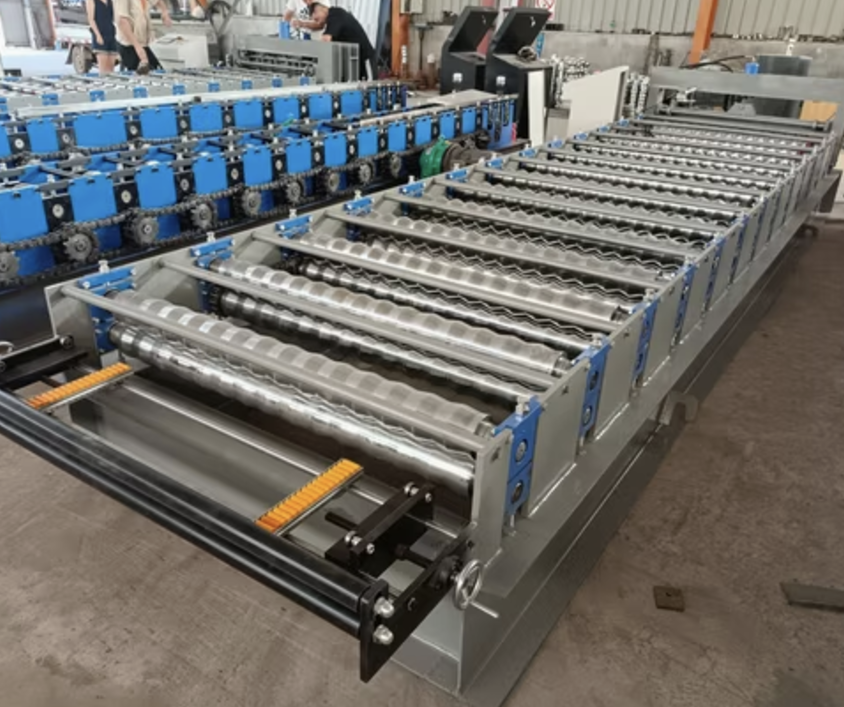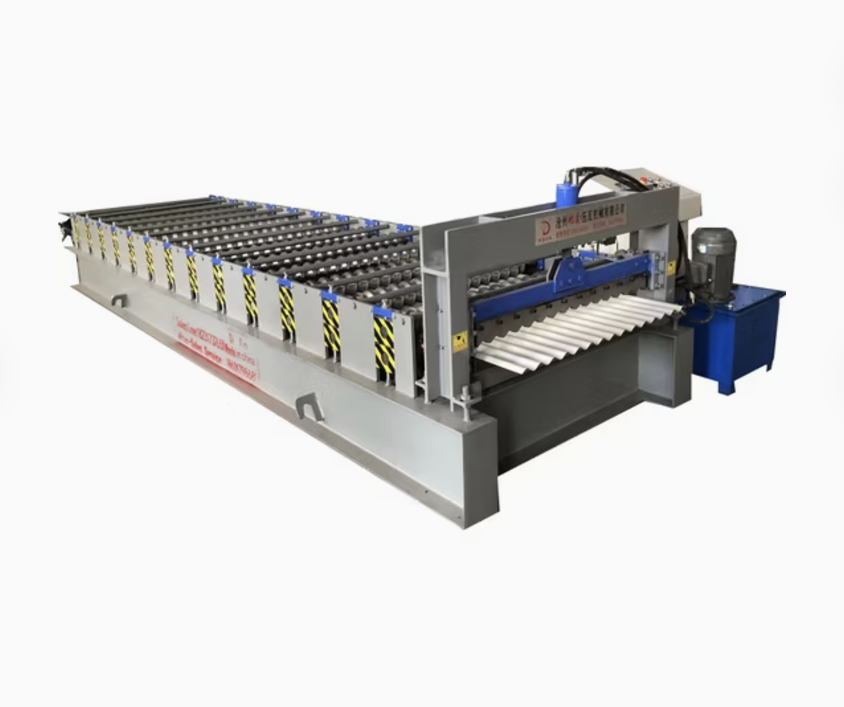To express an interest in this machine please submit the form below.

Not Sure What Machine You Need?
Select Your Profile, We'll Match It
Choose your desired profile drawing, and let Machine Matcher connect you with the best roll forming machine tailored to your needs.
Browse Profiles


The Corrugated Roof Sheet Roll Forming Machine is a specialized equipment used to produce corrugated roofing sheets, which are widely used in residential, commercial, and industrial roofing and cladding applications. The machine operates by feeding metal coils into a series of rollers, which gradually shape the material into the desired corrugated profile.
These machines are designed to handle various materials such as galvanized steel, aluminum, and pre-painted steel. They are popular in the USA due to their ability to produce durable and aesthetically appealing roofing materials. The machines are often equipped with advanced control systems to ensure precision, high efficiency, and minimal waste during production.
Here are the general specifications for a Corrugated Roof Sheet Roll Forming Machine tailored to the USA market:
Q1: What materials can the machine handle?
A1: The machine is compatible with galvanized steel, aluminum, and pre-painted steel. Material thickness should range between 0.3mm and 0.8mm.
Q2: What is the typical production speed?
A2: The machine can produce at a speed of 10-15 meters per minute, depending on the profile and material type.
Q3: Is the machine compliant with U.S. standards?
A3: Yes, the machine is designed to meet U.S. electrical and safety standards, including UL and OSHA compliance.
Q4: How is the machine controlled?
A4: The machine features a PLC control system, usually Siemens or Mitsubishi, with a user-friendly touchscreen interface for automation and monitoring.
Q5: Can the machine produce custom profiles?
A5: Yes, the machine can be customized to produce specific corrugated profiles based on customer requirements.
Q6: What is the average price range?
A6: The price can range from $30,000 to $100,000, depending on specifications, optional features, and capacity.
Q7: What warranty is provided?
A7: Most manufacturers offer a 1-2 year warranty covering parts and service. Additional warranties may be available upon request.
Q8: How do I ensure long-term machine efficiency?
A8: Regular maintenance, using high-quality materials, and ensuring proper calibration will help maintain machine efficiency over time.
Copyright 2026 © Machine Matcher.